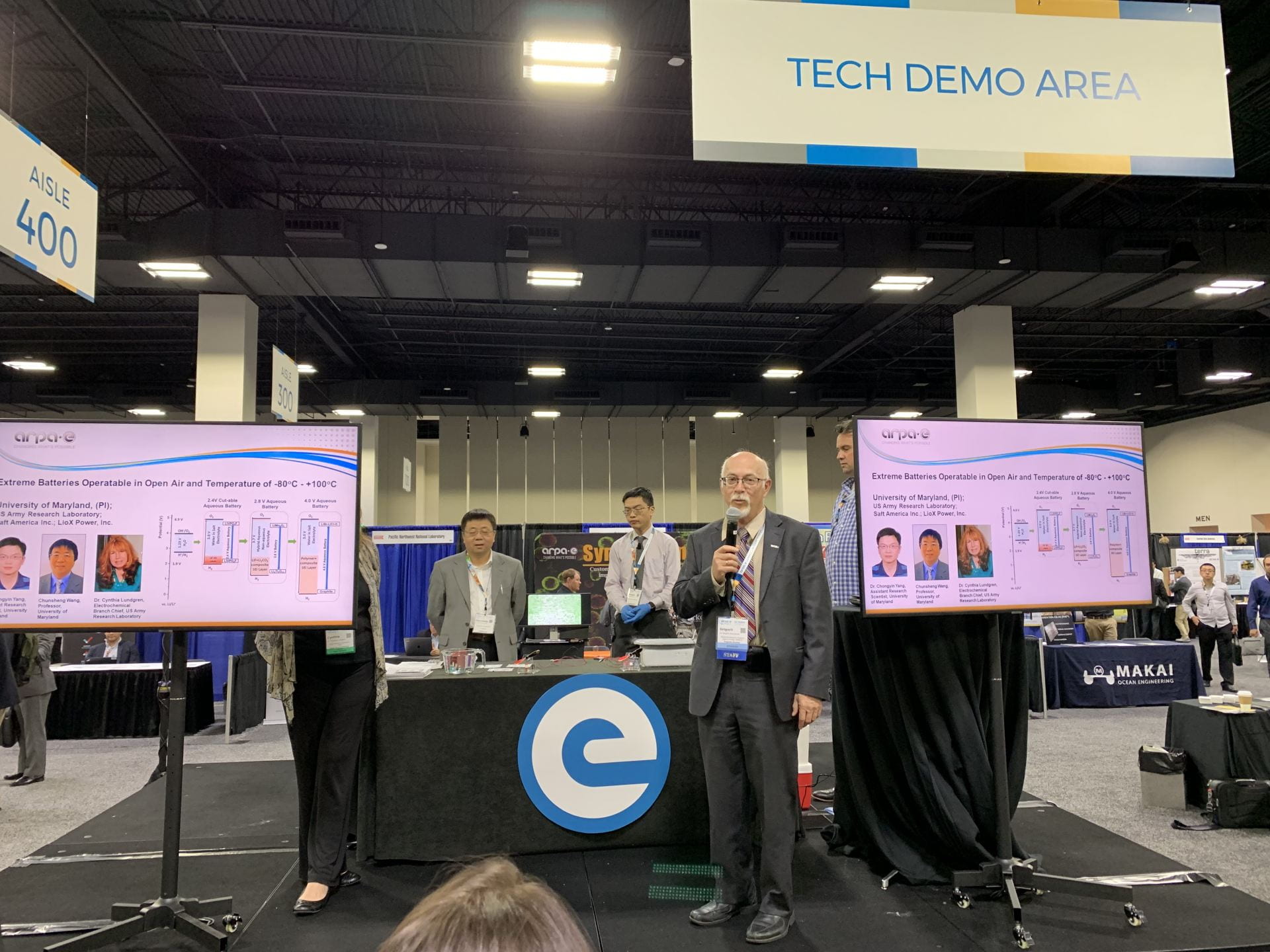UMD/MEI2 Energy Innovation Featured at ARPA-E 2019
The Department of Energy’s Advanced Research Projects Agency – Energy (ARPA-E) held their 10th Energy Innovation Summit in Colorado July 8-10, 2019. This year’s event recognized 10 years of “making ideas into reality” and setting the stage for the next decade of energy innovation. Once again, the Maryland Energy Innovation Institute (MEI2) and the University of Maryland (UMD) were well represented. Dr. Ellen Williams, MEI2 Advisory Board Member and former ARPA-E Director, was featured during a panel discussion on a 10 Year Retrospective of Technical Innovation. She walked the audience through the agency’s innovative history, discussing successes and the lessons learned that will guide the next decade of energy innovation at ARPA-E. During her tenure as ARPA-E director, Dr. Williams advanced high-potential, high-impact energy technologies during early stage development in order to assist their transition into a commercial reality. After the retrospective, an ARPA-E video highlighted one of MEI2/UMD technologies, Safe, Low-Cost, High Energy-Density, Solid-State Li-Ion Batteries, and the project’s collaboration with a university start-up company, Ion Storage Systems (ISS), to help transfer the technology to scale and provide a marketable product. Dr. Eric Wachsman, MEI2 Director and CEO of ISS, discussed pushing safety limits with his battery technology and the use of solid rather than liquid electrolytes to create a non-flammable Li-Ion battery that can be used in defense, automotive and consumer electronic markets. At the end of the day, as an ARPA-E program manager noted in the video, technology development is critical, but the impact of that as a product and how it contributes to the world is what matters. The following UMD projects were displayed at this year’s Technology Showcase:
Dr. Chunsheng Wang, Robert Franklin and Frances Riggs Wright Distinguished Chair in the Department of Chemical and Biomolecular Engineering at UMD, was featured in the Tech Demonstration for his Multiple Electron Aqueous Battery for Vehicles. In 2015, Dr. Wang’s team invented water-in-salt (WIS) electrolytes. The WIS electrolyte enables Zn-air batteries and transition metal-free LiBr0.5Cl0.5-Graphite cathodes to achieve high energy density and cycle life. The team demonstrated a novel WIS electrolyte that enables aqueous rechargeable Li-ion batteries to provide 170 Wh/Kg and operates even after cutting and exposure to air and water. The group also demonstrated a flexible aqueous Li-ion battery that continuously drives a fan during cutting in air and in water. The aqueous battery is also able to drive a fan in extreme temperatures (-80oC). To date, UMD has been involved in 20 projects and has received over $55M in funding.
July 15, 2019 Prev Next |


